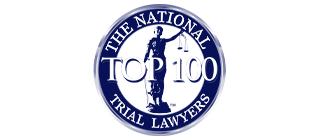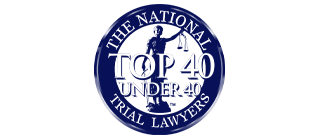Lake Fire Overview
 Below is an overview of the Lake Fire and how it has affected communities in Santa Barbara County.
Below is an overview of the Lake Fire and how it has affected communities in Santa Barbara County.
- The Lake Fire in Santa Barbara County is now 100 percent contained
- The fire started on July 5, 2024, and was contained on August 4, 2024
- The cause of the fire is under investigation, and might be human activity-related or not
- The fire burned a total of 38,664 acres
- There were confirmed damages to structures, including at least four structures completely destroyed
- There were no fatalities reported, but there were seven injuries
- Suppression repair work is ongoing, with minimal fire growth within the fire perimeter
- Road closures happened in several areas affected by the fire
- Multiple agencies and organizations were involved in the firefighting and recovery efforts
Regular updates and more information can be found on the CAL FIRE website and other official sources. Anyone who suffered injuries or property damage should discuss their legal rights with a Lake Fire insurance claim attorney.
How Much Is My Lake Fire Insurance Claim Worth?
When you file an insurance claim for damages from the Lake Fire, there are several forms of compensation you may be entitled to recover. These compensations are designed to help you rebuild and recover following such a devastating event.
- First, you can receive compensation for property damage. This compensation covers the cost of repairing or rebuilding your home and any other structures on your property, such as garages, sheds, or fences. If your home is a total loss, your insurance policy may pay for the full replacement value or the actual cash value of your property, depending on your coverage.
- Personal property compensation is also available. This compensation includes the replacement or repair of items inside your home, such as furniture, electronics, clothing, and other personal belongings. Some policies offer a set amount for personal property, while others may require an inventory of lost items to determine the payout.
- In addition, you may receive compensation for additional living expenses (ALE). If the wildfire has forced you to evacuate or made your home uninhabitable, ALE covers the cost of temporary housing, meals, and other extra expenses you incur while your home is being repaired or rebuilt. This compensation can include hotel stays, restaurant bills, and even the cost of additional transportation.
- Another key form of compensation is for landscaping and debris removal. Wildfires often destroy trees, plants, and other landscaping features, and your policy may provide funds to restore your yard. Moreover, debris removal covers the cost of clearing away the remnants of your destroyed property.
- If the wildfire causes damage to your car, you may also receive compensation under your auto insurance policy if you have comprehensive coverage. This coverage can help pay for repairs or the replacement of your vehicle.
- Finally, some policies offer compensation for emotional distress or loss of use. While not always included, this compensation provides additional financial relief if the wildfire has significantly affected your mental health or your ability to use your property.
Most Common Causes of California Wildfire
 The cause of the Lake Fire is under investigation. Once the cause is determined, we can determine whether you have the right to pursue a lawsuit against the responsible parties, such a PG&E or other potentially negligent parties.
The cause of the Lake Fire is under investigation. Once the cause is determined, we can determine whether you have the right to pursue a lawsuit against the responsible parties, such a PG&E or other potentially negligent parties.
The following are some common things that can trigger wildfires in California, many of which are linked to both natural factors and human activities.
- One of the primary natural causes of wildfires is lightning. During thunderstorms, especially in the dry summer months, lightning can strike dry vegetation or trees, sparking a wildfire that can rapidly spread, particularly in areas around lakes where the terrain is often rugged and densely forested. If lightning ignites a fire that damages your property, you may be eligible to file a claim under your wildfire insurance policy.
- Human activities are another major cause of wildfires. Campfires left unattended or improperly extinguished are a significant risk, particularly in popular camping areas around lakes. Similarly, discarded cigarettes or fireworks can easily ignite dry brush or grass, leading to widespread fires. If a wildfire due to human negligence affects your property, you may be eligible to file an insurance claim for the damages.
- Electrical equipment and power lines are also common causes. Faulty equipment, downed power lines, or equipment-related sparks can easily start a fire in dry, windy conditions. For instance, electrical transmission lines ignited the catastrophic Camp Fire in 2018, causing massive destruction. If a utility company’s equipment causes a fire that damages your property, you can be eligible for compensation through an insurance claim or even a lawsuit against the responsible company.
- Another contributing factor to wildfires is vehicle-related incidents. Cars parked on dry grass, overheated engines, or accidents can easily start fires. In addition, construction activities that involve the use of heavy machinery or tools that generate sparks can lead to wildfires if proper precautions are not taken. If such an incident leads to a wildfire that affects your property, you may be entitled to file a claim.
- Finally, arson is a deliberate cause of wildfires, though less common. If a wildfire that was intentionally set damages your property, your insurance should cover the losses, and you may be eligible for additional compensation if the perpetrator is caught and held liable.
Most Common Losses in Wildfires
When a wildfire strikes in California, the losses you may suffer can be significant and varied:
- Property damage is often the most immediate and visible loss. This damage includes the destruction of your home and any other structures on your property, such as garages, sheds, or fences. Wildfires can also cause severe damage to the foundation of a building, rendering it unsafe or uninhabitable. If your home is destroyed, your insurance policy may cover the cost of rebuilding or repairing your property based on its replacement or actual cash value.
- Personal property loss is another major concern. Wildfires can consume all the belongings inside your home, including furniture, electronics, clothing, and other personal items. The financial repercussions of replacing these items can be substantial. Insurance policies typically provide compensation for personal property loss, but you may need to document and itemize your belongings to receive adequate compensation.
- Landscaping damage is also common. Wildfires often destroy trees, plants, and lawns, which can significantly affect the aesthetic value of your property. Insurance coverage for landscaping can help with the cost of replanting and restoring your yard, though there may be limits based on your policy.
- Additional living expenses (ALE) are incurred when your home is rendered uninhabitable, including the cost of temporary housing, such as staying in a hotel or renting an apartment, as well as additional costs for meals and other necessities. ALE coverage helps alleviate the financial burden of living away from your home while repairs are made.
- Environmental damage is another loss, particularly for properties near lakes. Wildfires can cause long-term damage to the surrounding ecosystem, affecting wildlife and water quality. While not always covered under insurance, this damage can have lasting consequences on property value and natural surroundings.
- Emotional distress and mental health effects may also result from the trauma of losing your home and possessions. While insurance policies typically do not cover these emotional aspects, they are significant losses that can affect your overall well-being.
Fighting the Insurance Company in a Lake Fire Case
Fighting the insurance company for you in a California Lake Fire claim involves several key steps to ensure that you receive fair compensation for your losses. At Reiner & Frankel, LLP, here is how we can assist you in this process:
- Thorough Documentation – We will gather and organize all necessary documentation related to the wildfire, including photographs of the damage, a detailed inventory of lost personal property, repair estimates, and any other relevant records. Proper documentation is crucial for substantiating your claim and ensuring the insurance company acknowledges the full extent of your losses.
- Policy Review – We will carefully review your insurance policy to understand the coverage limits and exclusions. We will identify the forms of compensation to which you are entitled and ensure that all aspects of your claim are covered according to the terms of your policy.
- Filing the Claim – We will assist in preparing and filing your insurance claim accurately and promptly, including drafting the necessary forms, submitting supporting documents, and meeting all deadlines to avoid delays or denials.
- Negotiation – Insurance companies may initially offer lower settlements than you deserve. We will negotiate on your behalf to secure a fair settlement. Our experience with handling similar claims allows us to effectively advocate for the maximum compensation possible.
- Handling Disputes – If the insurance company disputes your claim or denies it, we will work to resolve the issue. Handling a dispute may involve appealing the decision, providing additional evidence, or even pursuing legal action if necessary.
- Informed Advice – We will provide informed legal advice throughout the process, explaining your rights and options. Our goal is to ensure that you are fully informed and supported in securing the compensation to which you are entitled.
By leveraging our legal knowledge and resources, we can fight effectively on your behalf to ensure that you receive the fair compensation you deserve for your California Lake Fire claim.
Important Steps To Take After Lake Fire Damage
Following fire-related damage and losses, it’s crucial to follow certain steps to ensure your safety and to start the recovery process:
- Ensure Safety – First, make sure you and your family are safe. Follow any evacuation orders and stay away from hazardous areas.
- Contact Your Insurance Company – Notify your insurance company about the wildfire damage as soon as possible. They will guide you on how to file a claim and the documentation you need.
- Document the Damage – Take detailed photos or videos of the damage to your property and belongings. This evidence is essential for your insurance claim and for assessing the extent of your losses.
- Secure Your Property – If it is safe to do so, secure your property from further damage. Securing your property may include boarding up windows or covering damaged areas to prevent looting and additional exposure to the elements.
- Seek Temporary Housing – If your home is uninhabitable, find temporary housing and keep receipts for any additional living expenses. Your insurance policy may cover these costs.
- Keep Records – Maintain thorough records of all communications with your insurance company, repair estimates, and any other related documents.
Call an Experienced Lake Fire Lawyer Today
At Reiner & Frankel, LLP, we can handle every step of your Lake Fire claim for you and pursue the maximum compensation available to you in your case. For a free case evaluation with a knowledgeable Lake Fire attorney, please call us at (530) 241-0290 or contact us online today.

 Like many wildfires, the Lake Fire caused significant damage. If your property sustained damage in the fire, the experienced legal team at Reiner & Frankel, LLP, is prepared to fight for your rights and interests. Our attorneys have a strong track record of success favorably settling and litigating personal injury and wildfire insurance claims throughout the state. You can review our most recent client testimonials and case results on this site to learn more about our firm.
Like many wildfires, the Lake Fire caused significant damage. If your property sustained damage in the fire, the experienced legal team at Reiner & Frankel, LLP, is prepared to fight for your rights and interests. Our attorneys have a strong track record of success favorably settling and litigating personal injury and wildfire insurance claims throughout the state. You can review our most recent client testimonials and case results on this site to learn more about our firm. Below is an overview of the
Below is an overview of the  The cause of the Lake Fire is under investigation. Once the cause is determined, we can determine whether you have the right to pursue a lawsuit against the responsible parties, such a PG&E or other potentially negligent parties.
The cause of the Lake Fire is under investigation. Once the cause is determined, we can determine whether you have the right to pursue a lawsuit against the responsible parties, such a PG&E or other potentially negligent parties.



